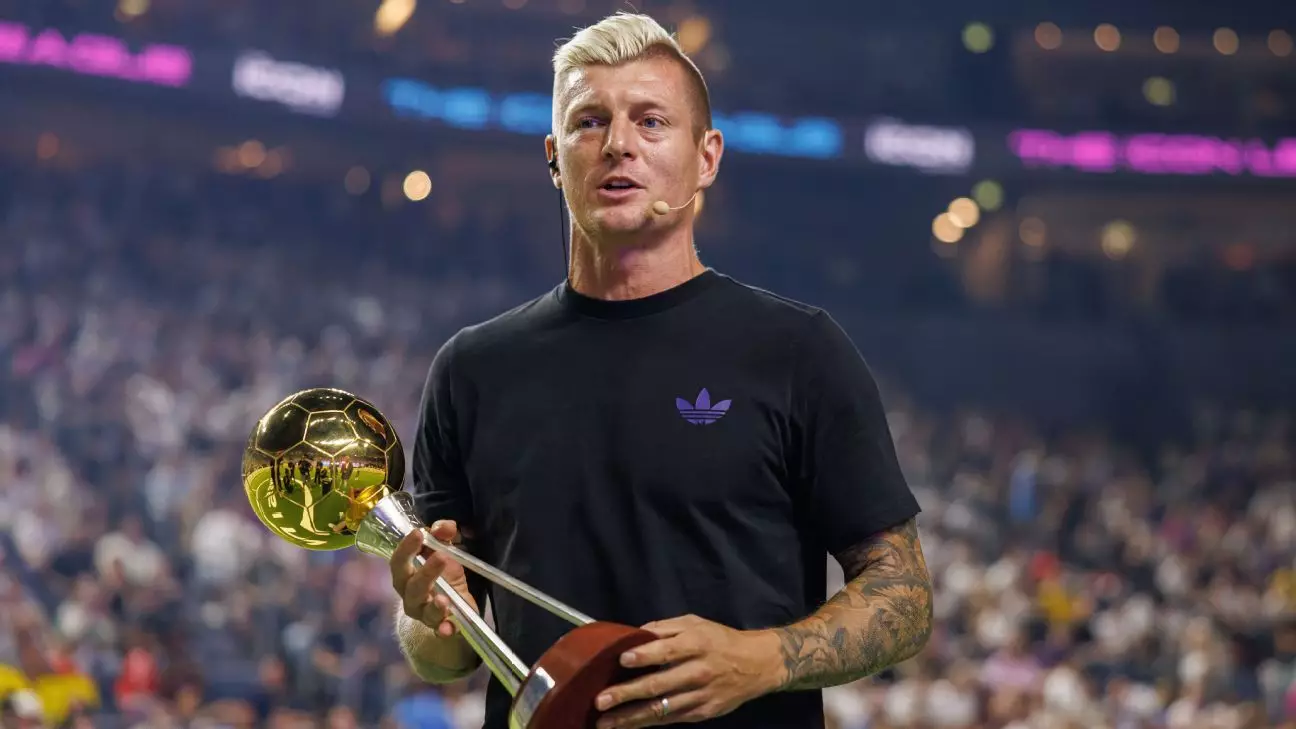Toni Kroos, the accomplished German midfielder, bid farewell to his illustrious career at Real Madrid with a sense of closure and accomplishment. His decision to retire, although not influenced by the arrival of another superstar, emphasizes the individual journey every athlete must navigate at the end of their careers. Kroos’ departure marks not only the end of a remarkable chapter for him personally but also exemplifies the evolution of a storied football club as it transitions to new talents.
Kroos’ revelation about his retirement, especially in connection with Kylian Mbappé’s signing, emphasizes an innate understanding of one’s personal timeline in a sport that is notoriously fluid. Soccer is a game often characterized by swift changes in talent and team dynamics, yet Kroos’s choice was a testament to his introspective nature. He articulated that the decision to leave Madrid had little to do with the arrivals or departures of players, including the French prodigy. This self-awareness highlights the significant impact that personal reflections can have on professional commitments.
The midfielder articulated the challenge of informing Carlo Ancelotti, his longtime coach and mentor, of his decision. Their bond, built over several seasons, underscores the emotional ties that can exist between a player and coach. Kroos admitted that it was difficult to convey his choice, knowing Ancelotti’s expectations leaned towards retaining the seasoned midfielder. This moment of vulnerability is often glossed over in sports narratives, yet it reveals the human side of elite athletes.
Kroos’ tenure at Real Madrid saw the midfielder collecting an impressive 23 trophies, including an extraordinary five UEFA Champions League titles. It is a feat that not only cements his legacy among the club’s greatest but also reflects the influence he had on the pitch. At the age of 34, retiring after clinching a La Liga and Champions League double appears to be a perfect farewell, illustrating how he maintained peak performance levels right until the end.
Winning the World Cup in 2014 added another layer to his profile, establishing him as one of the elite players of his generation. Each trophy contributes to a compelling narrative, and Kroos’s legacy will likely serve as an inspiration for future players considering the pathway to achieve greatness.
The transition of Kroos’s iconic No. 8 shirt to Federico Valverde symbolizes a shift in the club’s identity. Valverde, known for his dynamic playing style, is now entrusted with filling the sizeable void left by Kroos. The act of passing the shirt carries with it an implicit endorsement and a clear message: Kroos believes in Valverde’s potential. This camaraderie between former and current players highlights an essential aspect of professional sports—the mentorship role that seasoned athletes can play in shaping the futures of emerging stars.
Kroos’s acknowledgment of Valverde’s qualities as both a person and player showcases the importance of nurturing talent within a team. With newfound responsibility comes a unique opportunity for Valverde to learn from Kroos’s legacy, tapping into the latter’s experience as he navigates the complexities of top-flight football.
In retrospect, Kroos’s choice to retire was not a mere departure from the pitch, but a poignant reminder of the chapters athletes must embrace as they conclude their careers. It reflects the bittersweet nature of change within sports, where every ending heralds a new beginning. Kroos’ journey at Real Madrid, marked by triumph, tenacity, and professionalism, establishes a benchmark for many young players aspiring to leave their mark on the beautiful game.
As footballers come and go, the essence of what they leave behind—values, skills, and knowledge—continues to reverberate within the culture of the sport. Kroos’s statement about the inevitability of endings resonates as he steps into a world beyond competitive football. His contributions to Madrid and his footballing philosophy will remain enduring influences, guiding future generations in their pursuit of excellence on and off the field.

Leave a Reply